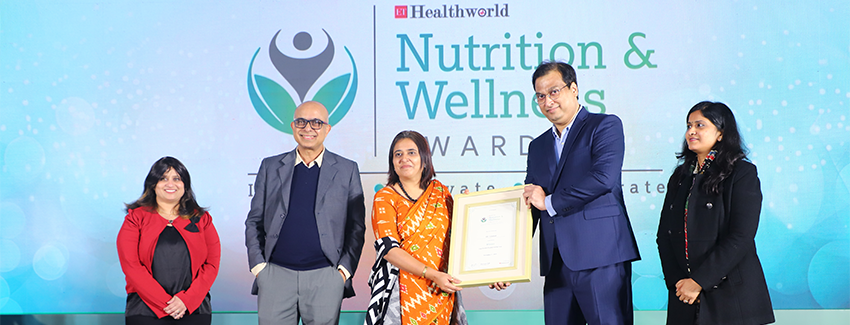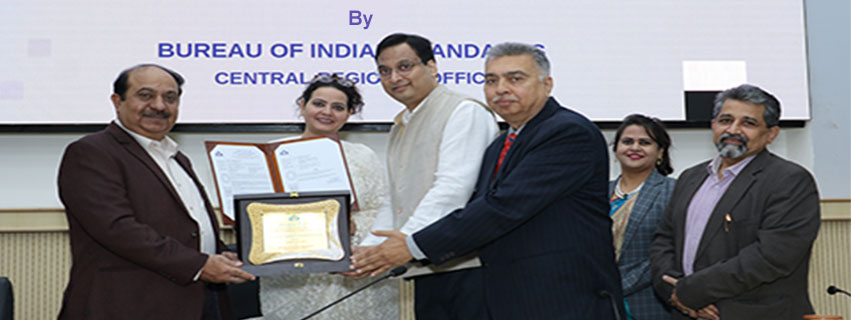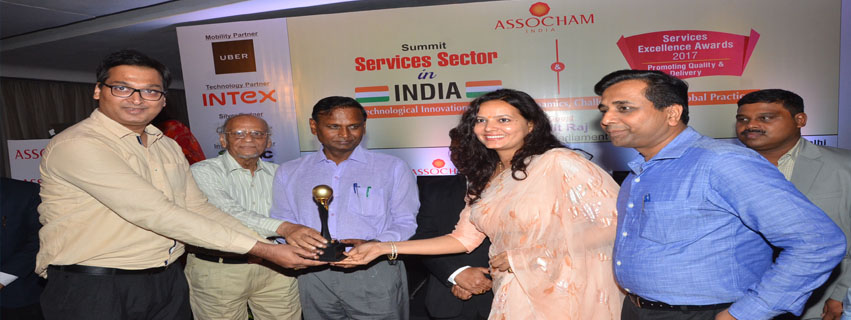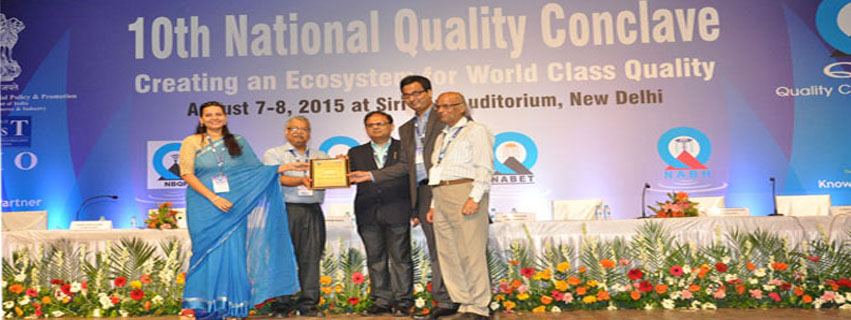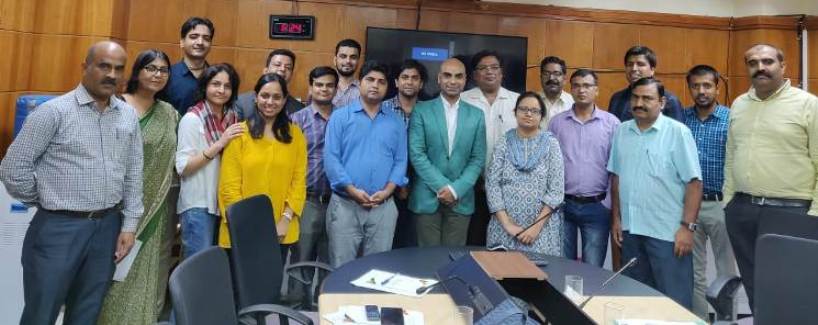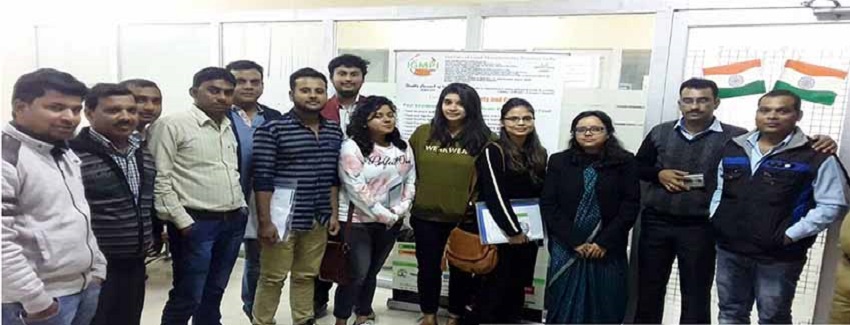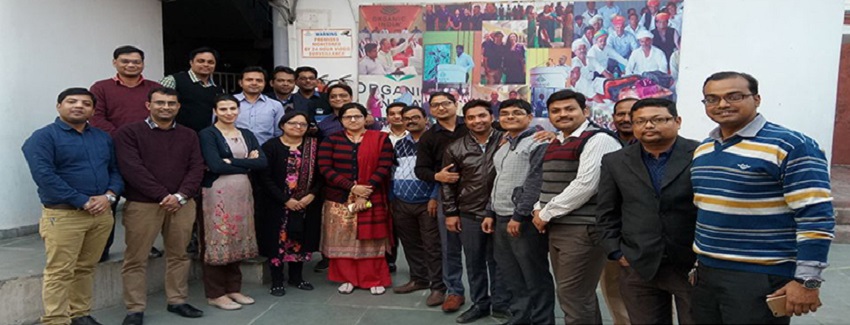(An Autonomous Body Recognized by Ministry of Commerce & Industry, Government of India)
Competency based placement focussed Education | Training | Research | Consultancy
Professional Certification in AI and Data for Environmental Sustainability (PCAIDES)
The Professional Certification in AI and Data for Environmental Sustainability is designed to equip professionals and learners with the skills to harness data science and artificial intelligence in tackling global environmental challenges. In a world where sustainability and technology increasingly intersect, this program provides a vital bridge between environmental systems understanding and modern analytical techniques, enabling participants to turn complex data into meaningful, actionable insights.
Throughout the course, participants explore how AI, machine learning, and big data analytics can be applied to areas such as climate change mitigation, renewable energy optimization, carbon management, waste reduction, and biodiversity monitoring. The curriculum integrates both conceptual learning and hands-on projects, emphasizing the ethical and responsible use of AI for sustainable development.
By the end of the program, participants will be able to design and implement data-driven solutions that enhance environmental decision-making, strengthen sustainability reporting, and support organizations and communities in advancing toward a low-carbon, resilient, and resource-efficient future.
Programme Structure
Module 1: Foundations of Environmental Systems and Sustainability Frameworks
- Principles of environmental sustainability — ecosystems, resources, and SDGs.
- Climate systems, GHG emissions, and planetary boundaries.
- Global policy frameworks: Paris Agreement, UN SDGs, ESG disclosure.
Module 2: Data Literacy and Digital Foundations for Sustainability
- Environmental data types — spatial, temporal, sensor, and socio-economic datasets.
- Data collection, cleaning, and visualization for environmental analysis.
- Open data sources — NASA, NOAA, Copernicus, IPCC, CPCB, MoEFCC datasets.
Module 3: Artificial Intelligence and Machine Learning Fundamentals
- Supervised and unsupervised learning for environmental data.
- Model selection, validation, and performance metrics.
- Introduction to AI ethics, bias, and responsible AI for sustainability.
Module 4: Remote Sensing, GIS, and Earth Observation for Environmental Monitoring
- Fundamentals of GIS and remote sensing; satellite imagery types and resolution.
- Tools: Google Earth Engine, QGIS, and Copernicus Open Hub.
- Applications: land-use change detection, deforestation, water stress, and pollution mapping.
Module 5: AI Applications for Climate Change and Carbon Management
- AI for GHG estimation, forecasting, and emission hotspot analysis.
- Predictive modeling for renewable energy and carbon sequestration potential.
- Integration with carbon market MRV and corporate sustainability reporting systems.
Module 6: Environmental Big Data and IoT Systems
- IoT sensor networks for air, water, and soil monitoring.
- Data pipelines: real-time streaming, cloud storage, and dashboarding.
- Data fusion and anomaly detection in environmental data.
Module 7: AI for Renewable Energy Systems and Smart Grids
- Solar and Wind Energy Analytics — forecasting generation using AI and machine learning models; optimizing integration of intermittent renewables.
- Smart Grids and Energy Efficiency Optimization — load balancing, predictive maintenance, and grid resilience through intelligent data systems.
- AI-Based Demand Prediction and Energy Management — using predictive algorithms for consumption forecasting, peak-load management, and energy storage optimization.
Module 8: Environmental Risk Assessment and Decision Support Systems
- Predictive analytics for environmental risk and disaster management.
- Scenario modeling for flood, drought, and heatwave prediction.
- Decision support tools integrating AI, geospatial, and socio-economic indicators.
Module 9: AI in ESG, Corporate Sustainability & Reporting
- ESG data analytics — automation of disclosures and KPI tracking.
- AI for sustainability reporting (GRI, CDP, SASB, TCFD frameworks).
- Text mining for sustainability reports and sentiment analysis of ESG performance.
Module 10: Ethics, Governance, and Future Directions of AI for Sustainability
- Responsible AI principles (UNESCO, OECD, ISO 42001 AI Management Standards).
- Data privacy, bias, and transparency in environmental applications.
- Future trends — Generative AI for climate modeling, LLMs for sustainability analytics.
Module 11: Industry Case Studies
- Real-world case studies from environment, sustainability, climate, and development sectors:
- AI in climate forecasting and disaster management.
- Data-driven air quality and pollution tracking.
- AI for agriculture, water management, and biodiversity monitoring.
- Corporate sustainability reporting and ESG analytics.
Eligibility
Graduates in any discipline are eligible for our Post Graduate Diploma, Executive Diploma and Professional Certification Programmes.
Programme Duration
The minimum duration to complete the Professional Certification programme is 6 months and maximum is 12 months.
Programme Mode
Registration is currently open for Part-time (Online Live Classes) mode.
Programme Deliverables
A comprehensive study material for all the modules in hard copies ensuring the needs of the audience. The accompanying training material is appropriately aligned with the current Industry’s expectations.
- Interactive or online live sessions on all key areas of the programme giving all flexibility to the participants
- Online classes for all the modules will be conducted on the weekends. Moreover, a doubt clearing session will also be scheduled before the examination
- All the efforts are made by IGMPI faculty members to make the entire programme modules easily understandable
- Assessment and evaluation for all the programme modules in order to enhance the levels of competencies and skills of the participants leading towards the objective of application in the job
- At the end of each programme modules, the trainers shall obtain feedback from the participants using specially designed questionnaires
- All learning and training delivery initiatives shall be conducted in English
Examination and Certification
All the participants are obliged to timely submit completed assessment assignments (during the programme, usually after every module) and appear for an online proctored exam at the end of the programme. After successful completion, the participants will be awarded Professional Certification in AI and Data for Environmental Sustainability by IGMPI. For all the above-mentioned modules elaborate programme material, self-assessment assignments and project work details would be provided by the Institute from time to time. Details get updated on the webpage as well.
Discipline in Classes and Examination
Every student is required to observe a disciplined behaviour during her/his classes, assessments & examinations and to follow instructions from the Professors. Any act of indiscipline may result into discredit & it will be mentioned in her/his academic report.
Placement Assistance & Corporate Relations
The Institute has partnered with many organizations for providing with placement assistance to its participants. Besides, it has a robust placement cell comprised of senior level Human Resources professionals and Talent Acquisition experts which maintains close links with business and industry. This cell is continuously engaged in promoting the employability of our participants and encouraging the concerned Human Resource department and Hiring Managers to recruit/hire our participants for their vacant positions. The efforts of our placement cell also include helping with professional resume writing and interview skills.
In recent months, the Institute has witnessed more and more participation from professionals working with global think tanks. The IGMPI ‘s Corporate Resource Division actively recommends our students and training participants for various job requirements and specialized roles to Human Resource, Talent Acquisition as well as the heads of various departments in the industrial sector on a regular basis.
Future career prospects
Graduates of the Professional Certification in AI and Data for Environmental Sustainability will be uniquely positioned at the intersection of technology, data analytics, and environmental management — an area witnessing rapid global growth. As sustainability transitions become central to business strategy and policy planning, demand for professionals who can apply AI and data insights to environmental problems is rising across industries and institutions worldwide.
Potential Career Pathways Include:
- Environmental Data Scientist or Analyst
- Climate and Sustainability Data Specialist
- AI/ML Engineer for Environmental Applications
- ESG and Sustainability Reporting Analyst
- Smart Cities and Resource Efficiency Consultant
- Carbon Market and Climate Intelligence Analyst
- Remote Sensing and Geospatial Data Engineer
- Environmental Risk and Resilience Modeler
Leading Organizations and Sectors That Value These Skills Include:
- International development and climate organizations (UNEP, World Bank, UNDP, ADB)
- Environmental and sustainability consulting firms
- Energy, renewable power, and clean-tech companies
- Corporate ESG and sustainability divisions in multinational corporations
- Government and policy think tanks focused on climate and natural resources
- Research institutes, academic centers, and environmental NGOs
- Technology and AI firms developing solutions for smart cities, waste management, and carbon tracking
This certification opens doors to diverse, future-ready careers that combine technical innovation with environmental stewardship — preparing professionals to lead the digital transformation of sustainability.
Programme Fee Details
Programme fee details will appear here.
Last date for submitting completed Application Form: 2nd Mar 2026.
For further enquiries, call or write to us on:
18001031071
(Toll Free -9:00 am to 5:30 pm IST-except on Central Government holidays)/
info@igmpi.ac.in
NEWSLETTER
Other Programmes
- Certified Solar PV Technician (CSPVT)
- Chemical Safety (PCCS)
- Corporate Sustainability Reporting Directive (CSRD) Compliance and Reporting (PCCSRDCR)
- Corporate Social Responsibility Compliance (PCCSRC)
- Business Responsibility and Sustainability Report (PCBRSR)
- Energy Audit and Compliance Management (PCEACM)
- Environmental Impact Assessment (EIA)
- Enterprise Risk Management (PCERM)
- Environmental Social and Governance (PCESG)
- Environmental Management Systems (ISO 14001:2015) Lead Auditor (EMSLA)
- Green House Gases (GHG) Measurement, Reporting & Verification (PCGHGMRV)
- Geospatial Data Science (PCGDS)
- Petroleum and Natural Gas Products & Services Audit and Compliance (PCPNGPSAC)
- Occupational Health and Safety Management Systems (PCOHSMS)
- Healthcare Waste Management (PCHWM)
- Psychological Health and Safety at work (PCPHSW)
- Road Vehicles – Vehicle-to-Grid (V2G) Communication Interface System (PCV2GCIS)
- Certified Pollution Control Officer (CPCO)
- Solar, Wind, and Hybrid Energy Systems (PCSWHES)
- Fire Safety Audit (PCFSA)
- Water Quality and Management (PCWQM)

